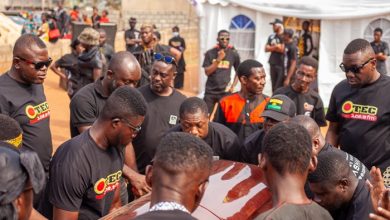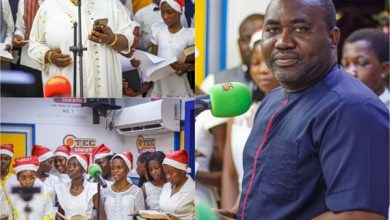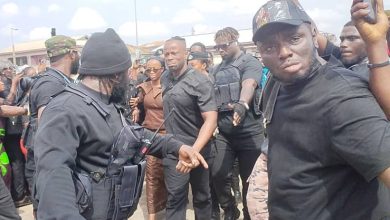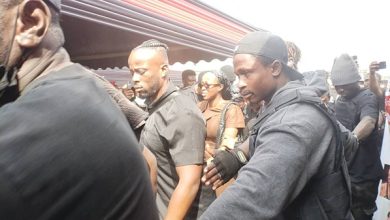Speaker challenges Nkrumah as Founder of Ghana
Professor Michael Aaron Ocquaye, the Speaker of Parliament on Friday cautioned against the politicisation of national issues, and challenged the position of Dr Kwame Nkrumah as the Founder of modern Ghana.
At a public lecture delivered in Accra, Prof Oquaye, a Historian, Academic and Pastor said there was the need for the political history of the country to be told in its entirety.
The lecture, titled: “4th August; Ghana’s Day of Destiny,” formed part of the activities marking the 60th independence anniversary of Ghana.
The United Gold Coast Convention (UGCC) was founded at as Ghana’s “day of destiny” because the vision for the country was drafted that day.
Formed at Saltpond in the Central Region, the UGCC, was the precursor of the governing New Patriotic Party (NPP), and according to Prof Oquaye, Ghana’s march to independence predated the March 6, 1957 declaration day.
The lecture, seeking to set the records straight explained that the progenitors of NPP, founded Ghana and not Kwame Nkrumah.
Prof Oquaye said: “Men and women inspired by love for country met in Saltpond to work for self-governance and freedom from globalisation. I have great regard for Dr Kwame Nkrumah as a great Ghanaian but the truth must be told.
“A recap of the chronology of events shows that before the arrival of Nkrumah, some gallant Ghanaians were taking steps to lead Ghana to independence. That is truism. People have regrettably asked how we can have more than one founder to such compatriots.
“I humbly lend them this advice. Foundership cannot be pursued in monopoly terms.”
The Speaker said Nkrumah, the first President of Ghana contributed towards independence, but was not the country’s founder.
He explained that the first President became one of Ghana’s founding fathers by his association with members of the UGCC.
“I have a great regard for Nkrumah but the truth is, he is not the Founder of Ghana,” the Speaker said.
The Speaker, a native of Osu in the Greater Accra Region, reminisced his younger days at Asamakese in the Eastern Region where he grew up and said he met some of the founding fathers of the UGCC.
In a Biblical allusion and proverbs in the local Akan and Ga languages, Prof Oquaye compared the story of Dr Nkrumah to that of the Apostle Paul in the Bible, who later converted to Christianity after the death of Christ, but took a central role in the work of first century Christianity.
He said the story of Nkrumah and the founders of the United Gold Coast Convention was similar to biblical Paul who was not present during the last Supper with Christ, as were Peter James and John but was credited to have played a major role in the spread of Christianity.
He told his audience, among whom were President Nana Addo Dankwa Akufo-Addo, former President John Agyekum Kufuor, Mr Ivor Greenstreet, the 2016 Presidential Candidate of the Convention People’s Party (CPP) and Mr Bernard Mornah, of the People’s National Convention (PNC), that he cautioned the late President John Evans Atta Mills against the institution of the Founder’s, Day in September 21, in honour of Dr Kwame Nkrumah, but he went ahead to do that in 2009.
Prof Oquaye said Dr Nkrumah was not the only one deserving to be honoured, adding: “Honour must be given to the deserving men who are the founding fathers of Ghana.”
He was of the view that he political fortunes of the CPP would continue to dwindle if the Party did not detach itself from the National Democratic Congress (NDC).
He blamed the NDC for making inroads into the CPP.
Describing the NDC having no tradition, Prof Oquaye said the CPP had been swallowed by the NDC, and as a truism, the CPP should know who swallowed them.
“If the CPP want to survive they must proceed to extricate themselves from the bowels of NDC, then they will survive,” the Speaker said.
The CPP, led by Nkrumah, was overthrown on February 24, 1966 by the National Liberation Council, and the Party was subsequently banned by the coup makers, which compelled some supporters of the tradition to form various parties.
Source: GNA




